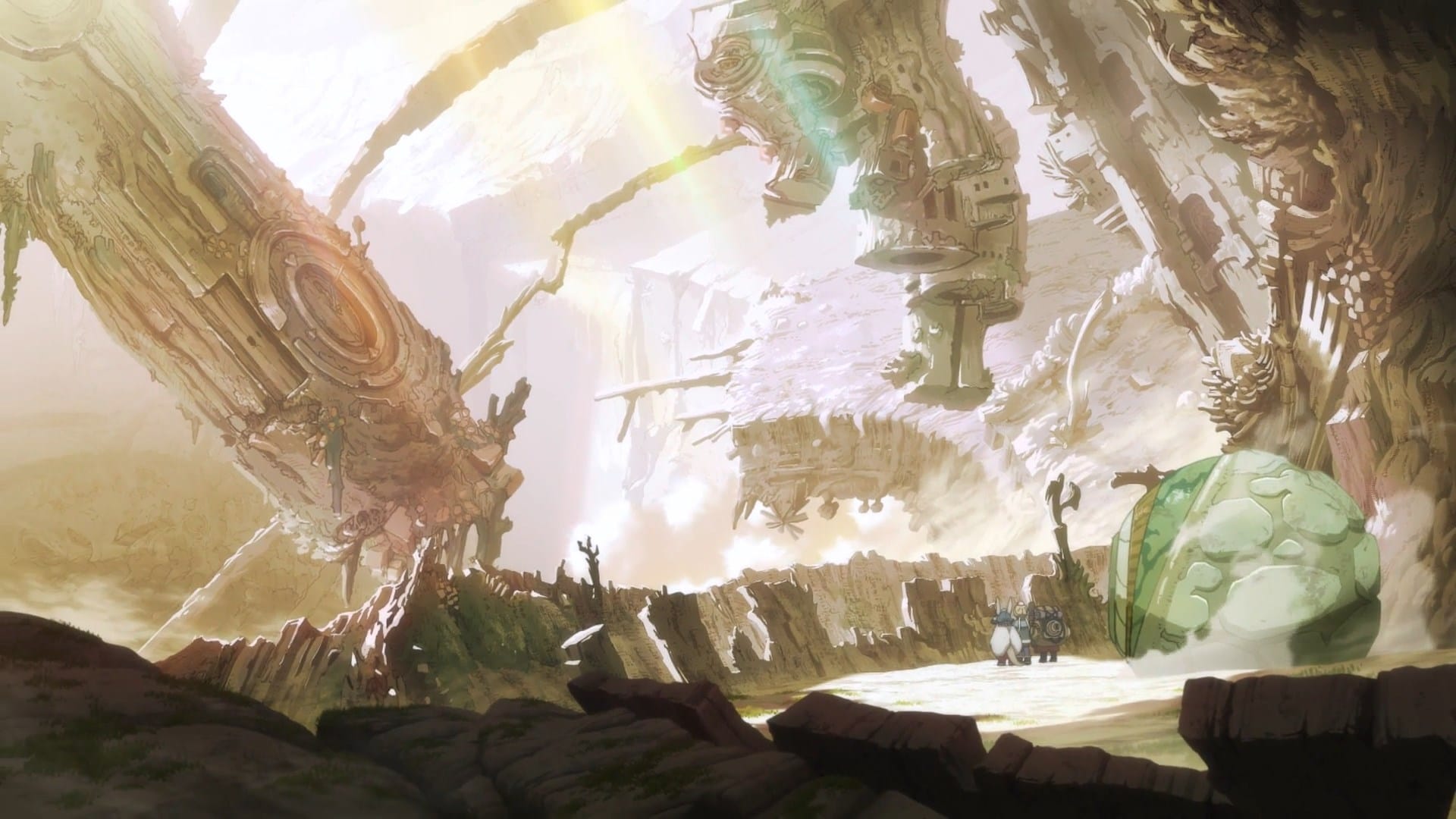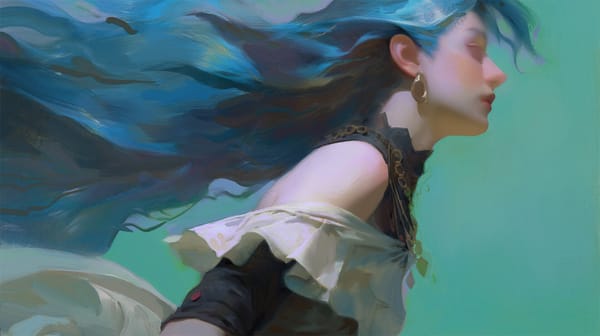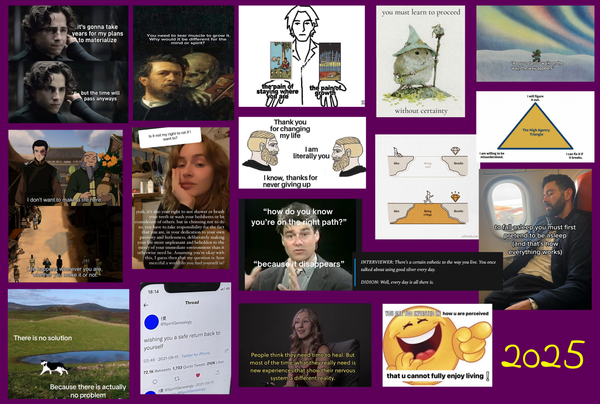why I’m emotionally invested in fictional characters
Even though they don’t exist, it doesn’t mean my love for them isn’t any less real.

(Well, not all fictional characters)
What is it about fictional characters that makes us feel so emotionally attached?
At first it was the world of fantasies that drew me in and invited me to explore many fictional universes — from the world of pocket monsters where you catch and raise them for battle (Pokemon) to the world of ninjas where a young ninja dreams to become the leader of his village (Naruto).
As I grew older, I started to empathise with the characters. I wanted to root for them and support them in pursuing their dreams in the face of adversity including darker times like death. I felt every emotion with them — I laughed in hysterics, I cried rivers, I screamed with joy, I fretted while biting my nails or shaking my legs with anticipation. My emotions were amplified when I sought for more stories outside of the canon (any material that is officially part of the story) universe via fanfiction. There are many amazing writers on the internet who can convey the originality of the characters in alternate universes (AUs). What if these characters were normal high school students? What if these characters met in a cafe and fell in love? What if these characters were rivalling criminal members and fell in love (the enemies to lovers troupe)? And these are only a drop in the vast ocean of stories and their characters involved.

You might feel attracted because you admire and aspire to be like them, or share common experiences with. You might like them because of their looks and that’s okay too. But the characters I find attractive are never only about good looks. Just like people in real life, you wouldn’t only like anyone due to their physical appearance. They also need an interesting personality, or have similar beliefs, values, or interests. I feel drawn to characters who are attractive, smart, and carefree (or exhibit complex/extreme behaviour) but conceal their pasts behind their personalities. They demand to be understood. What’s interesting about finding my favourite characters is the process of peeling back the layers of their personalities to reveal more about themselves. The more I learn about them, the more interested and intrigued I become. But sometimes attractive characters who are brooding dickheads in their own right are fun too.
I didn’t quite fit in when I started grade school. I was loud, open, and “rebellious” in the sense that I said what I wanted to say, mostly played with boys, and not following silly rules. Since it was a Chinese school, it meant being policed and being an obedient student by obeying every teachers’ orders. So, school crushed my innocent self when they punished me for being myself in front of people who I thought were friends. I felt ostracised for “not knowing my place”. In response to being humiliated, I built and hid away into the safety of my shell. I became anti-social because of shyness and reservations. I struggled to make friends from there on, because I didn’t want to mess up and embarrass myself. So I turned to stories. Those stories involved fictional characters who I grew to love. And I daydreamed about their adventures, hoping to do something exciting myself one day too. It was one-sided, but it felt the easiest to connect with someone that was imaginary.
This one-sided relationship is called a parasocial relationship, where one side develops a connection with the other side without their knowledge. From our perspective, we follow the journey, actions, and thoughts of our favourite characters, including the interactions of other characters. It’s almost as if we’re following them behind like a side character, becoming part of their adventures. Even though the characters interact with each other and not back with us, they still bring us joy and touch us deeply on a personal and intimate level. Even though they aren’t real, we form this relationship anyway because our feelings and emotions for them are as genuine as they can get.
I longed for the friendships and camaraderie that my favourites have. I wished that one day someone might pull me into their adventure and colour my life too. Instead I fantasised myself as part of my favourite characters’ adventures as they travel with their friends to fight bad guys and save the world. When they get beaten up, they have their friends to back them up. When they developed a romantic interest, it made me wonder if I was also worthy of a similar love in reality. But I didn’t think it was possible for someone like me to have what they had, but at least I can still cheer them on. Perhaps that’s why I’m so invested in my favourite characters: they provided me with an outlet of friendship that I lacked in real life.
Harry Potter: Is this all real? Or is it just happening inside my head? Professor Albus Dumbledore: Of course it's happening inside your head, Harry. But why should that mean that it's not real?
— Harry Potter and the Deathly Hallows
Even though we know that the stories are fictional, they nonetheless feel real to us. There are plenty of scientific studies to back this up. In one study, participants were invited and divided into two groups: one to play a simple sequence of piano keys and the other to imagine doing the same. Their brains were scanned every day for 5 days. The result: There were no changes in both groups’ brains. It turns out that our brains are incapable of distinguishing between what’s real and what’s not. Even if there is a difference, what’s stopping us from believing that any of our affections for our favourite characters aren’t real?

That’s the thing about stories; they are immersive experiences. You have no choice but to be pulled into this new existence that’s accompanied with visuals and music (or your own imagination if it’s a book). It makes you forget yourself and the world around you. Good writers weave stories and worlds so well that you forget they’re even fictional to begin with. They’re able to create and depict characters who can be representations of people in real life — their quirks, their layers of personalities, their histories and motivations. When we watch our favourite characters, we draw parallels between them and ourselves. We relate to their struggles and similar circumstances because they feel close to home, which makes us establish a more emotional connection with them as a result. You wouldn’t normally know all of these things about someone unless you become close to them.
Well-written characters compel us to cling onto their feelings, emotions, and thoughts from their perspectives, making us fall in love with them. When a story progresses from one timeline to another, we watch the characters grow in the same way that we do with our loved ones and friends. We see and find ourselves in our favourite characters, and they teach us lessons that we need to hear, leading us to feel more empathy for them than we do for people in real life. I would put myself in their shoes to identify and mirror their emotions, feeling their feelings and experiences, and empathising with them. A broken relationship between a child and their parent, a near impossible dream to achieve for someone with zero skills, the feeling of failure even after years of hard work and perseverance — I’ve experienced them all.
Usually you will need to engage with someone close enough to feel a connection with them. If you can do that with a fictional character, it might indicate that you have a high level of empathy. But it’s also possible that you grew attached to them as a result of your existing empathy. Maybe that’s why I’m empathetic to both my favourite characters and people in real life. I try to understand where others are coming from, but I’m also not immune to their BS.
My favourite characters lit a path of hope and comfort for me during the dark times when I didn’t have anyone to turn to. They took me out of the pits of despair and urged me to escape into the realm of fantasy. I wouldn’t expect anyone to understand where I’m coming from, due to fear of shame and pity, so I unknowingly pushed people away when I needed them most. But as I grew older and a bit wiser, I made friends and even found someone I could call a significant other. I still seek out my favourite characters to temporarily escape reality, especially when I stumble across an amazing story with memorable characters.
I don’t know what’s worse: when your favourite story ends, goes on hiatus, or you catch up with it. I say this because you wouldn’t be able to see your favourite characters anytime soon again. Either way, I’d be greeted with this deep void of emptiness and melancholy in my soul. Sure I could find another story, but I didn’t want to; it wouldn’t be the same. I want to let the entire experience sink into my very being, as I stare blankly and embrace and say hello to my old friend darkness against the ceiling. You cannot make this feeling up. And this feeling doesn’t go away anytime soon.
It doesn’t mean that my love for my favourite characters isn’t any less real. Because it wasn’t. Eventually when I move onto my next favourite thing or grow out of a certain phase, I’ll never forget the feelings that my favourite characters brought me over the decades. One day when I look back or come upon a familiar tune or scene, this deep sense of nostalgia will flood over me and might evoke a puddle to well up in my eyes. Even as I grow older, my love for my favourite characters — their past, present, and future — will remain in my heart.
Some of my favourite characters I loved over the years:
- Zuko (Avatar the Last Airbender)
- The Akatsuki gang (Naruto)
- Kanda, Lavi, and Tyki (D.Gray-Man)
- 10th (Doctor Who)
- Loki (Thor)
- Erwin and Levi (Shingeki no Kyoujin aka Attack on Titan)
- Gon and Killua (Hunter x Hunter)
- Currently: Hari and Gale (Guardians of the Lamb)
Big thanks to Jude Klinger, Nicolas Forero, Elizabeth Michael, Darryn May, and Jeremy Nguyen for the feedback of this piece.




